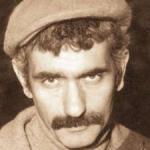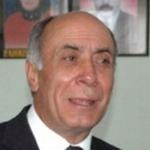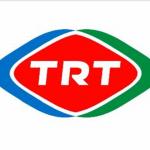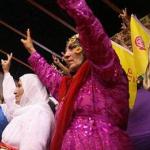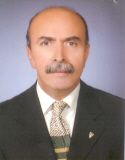The Ambiguous Status of Kurdish After TRT 6
Should not be election material
Mehdi Tanrıkulu is a former prisoner and sworn Kurdish interpreter. Commenting on the Ministry of Justice’s preparations to allow detainees and prisoners to speak Kurdish during visits from outside, he said that the initiative was late, but welcome.
“I hope that this, like the start of Kurdish broadcasts of TRT Şeş, will not be exploited during the [upcoming local] elections.”
Punishments for mother tongue
Tanrıkulu said that he was exposed to severe attacks in the Diyarbakir E-type prison during the period after the military coup of 12 September 1980 for speaking Kurdish. He also met with a ban on speaking the language in a prison in Eskişehir in 1987. When he was imprisoned a third time, in Kandıra F-type prison, he did not face any bans on speaking Kurdish.
Tanrıkulu is the owner of Tevn Publications and district chairman of the pro-Kurdish Democratic Society Party (DTP) in Fatih, Istanbul. He says that he has faced bans on speaking Kurdish since his childhood:
“It has become clear that Turkey will not get anywhere with oppression and denial. Forbidding Kurdish was monstrous. No people’s language should be banned. As long as Kurdish is not accepted as Turkey’s second official language, all these rights can be revoked. There must be a legal base, and there must also be an apology to Kurds for this language ban.”
Kurdish warranted beatings and disciplinary action
When Tanrıkulu stood accused of PKK membership at the age of 15 during the early 1980s, his mother had to learn a few words of Turkish in order to be able to see her son. When he had to smile at her Turkish, he was beaten until he fell into a coma.
In the Diyarbakır prison, the visiting area had posters saying “Speak Turkish, speak a lot.” This ban on Kurdish was continued in Eskişehir prison, where he was sent in 1987:
“Kurdish was forbidden. If we spoke Kurdish on the telephone, the connection was cut and we were given disciplinary punishments. Three disciplinary punishments meant that a prisoner would not be eligible for a reduced sentence.”
Finally, three months ago, Tanrıkulu was taken to Kandıra prison after taking part in a demonstration at Taksim Square. He was arrested for “spreading propaganda of an illegal organisation” and remained in prison for around three months. In this prison he did not encounter any bans on Kurdish, either on the phone or during visits.
Kurdish to be allowed in prisons
According to the Radikal newspaper, the government is preparing to make a change in Article 88 of the Penitentiary Regulations, allowing detainees and prisoners to speak Kurdish in telephone conversations. In order to make use of this right, it will be enough to state that one does not know Turkish. The telephone conversations will be recorded.
If there are "criminal acts", Kurdish will be forbidden
Lawyer Sezgin Tanrıkulu, former president of the Diyarbakır Bar Association, finds this draft law problematic. The draft foresees that, if the recorded conversations show evidence of a criminal act, the person concerned will not be allowed to use “any language but Turkish” again.
Tanrıkulu says, “This means that Kurdish is still considered a criminal language,” and adds:
“This is wrong in the extreme. If there was anyting criminal in a telephone conversation, whatever language the conversation was in, there are relevant sanctions in the regulations. There are bans on visits. There cannot be a separate ban according to language. If the same crime was discussed in Turkish, would they ban the use of Turkish?”
Fined for a language he does not speak
Meanwhile, the ban on Kurdish continues in the political arena. A criminal court of peace in Manisa, western Turkey, has sentenced a parliamentary candidate for the general elections in July 2007 to a fine of 3,000 Turkish Lira.
Şah İsmail Özocak was an independent candidate supported by the pro-Kurdish Democratic Society Party (DTP) in the general elections. He stands accused of spreading propaganda in Kurdish at a pre-election gathering on 15 July. Özocak rejects this, saying that he does not speak Kurdish, and that he has a CD recording of the gathering.
“All I did was introduce our visitors to the people in Kurdish and Turkish. How can you describe this as propaganda?”
Need for more democracy
He went on to say:
“Suddenly, the government has started Kurdish broadcasts on TRT Şeş. If one wants to bring more democracy, then anti-democratic structures need to be abolished, and this has to be guaranteed constitutionally. As long as this does not happen, we will continue to be accused of spreading propaganda in a language we do not speak.”
Özocak, the province chair of the Labour Party (Emek Partisi) in Manisa. Under the Political Party Law he was punished for six months, later reduced to five months and then converted to a fine, for violating Articles 43 and 81. These articles ban the use of any language but Turkish for political propaganda. (EÖ/TK/AG)




